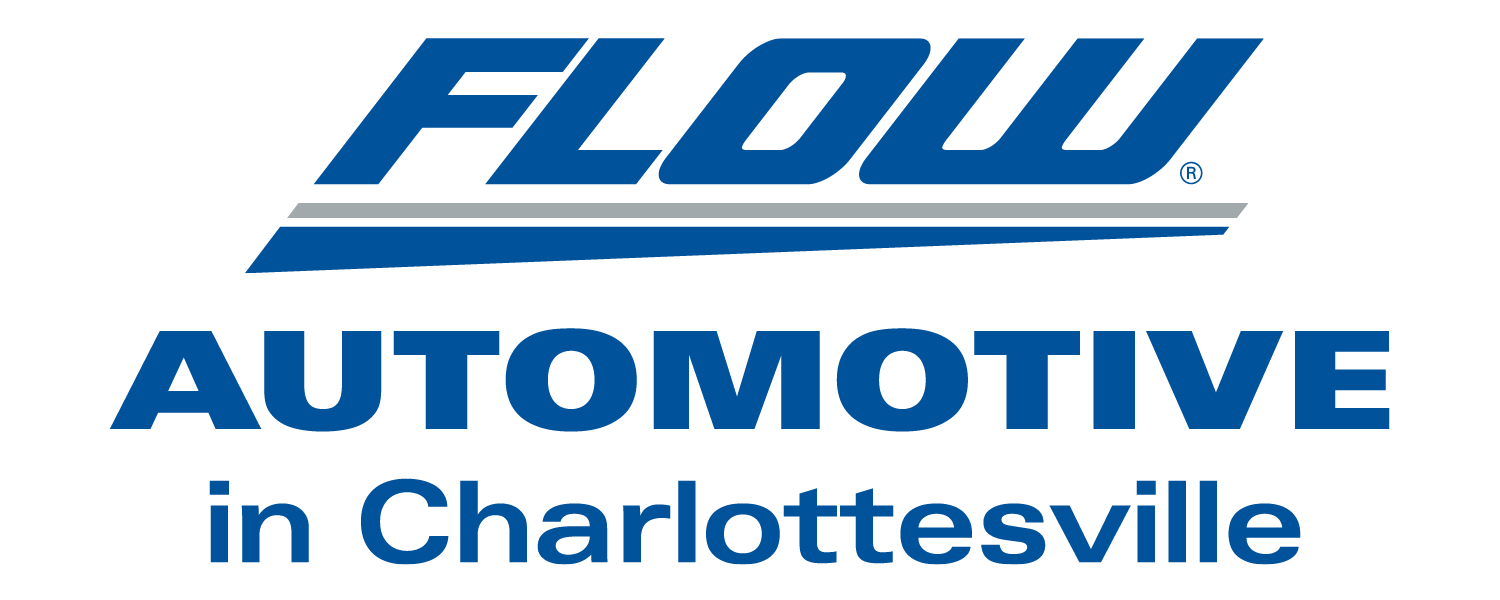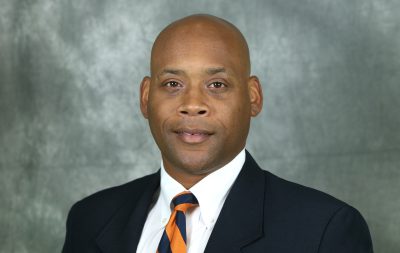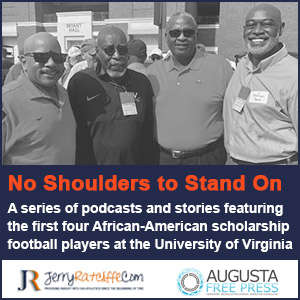Kitchings goes way back with Elliott, has learned from some great offensive minds
By Jerry Ratcliffe
Des Kitchings was nice and comfy as the Atlanta Falcons running backs coach. Having finally made it to the NFL, he wasn’t in any hurry to leave until he got that phone call from an old friend.
“There’s very few, if any, people that I would have left the NFL to come back to college and work with, and one of those guys is Tony Elliott,” Kitchings said Wednesday. “So from a professional relationship, to come and help him build a program the way he sees it.”
Kitchings, Virginia’s offensive coordinator and tight ends coach, crossed paths with Elliott 16 years ago. Kitchings was on Furman’s staff and was hired at Vanderbilt. Furman hired Elliott to replace Kitchings, so they were on the same staff for about a week.
Funny thing was, with tight budgets on the FCS level in those days, when a coach left for another job, he had to turn in his cell phone. Kitchings returned his phone, which was given to Elliott.
“And to this day [Elliott] still has the same number,” Kitchings chuckled. “I know his Greenville cell phone number by heart because it used to be mine. So in that transition, there were people calling his cell phone, thinking that I still had that number. I’d tell [Elliott], some people are trying to reach out to you. That’s how it started.”
The two men kept up with one another over the span of their careers, and competed against each other when Kitchings was at NC State, Elliott at Clemson. They agreed that if either became a head coach, they would hire the other. Virginia was the first opportunity for that to happen.
Now that that goal has been accomplished, it’s a matter of blending both coaches’ offensive philosophies, along with input from the rest of the staff, in order to come up with a “Virginia” offense.
Elliott elaborated recently on how that offensive plan will come together. Having been Clemson’s play-caller for years, how much influence will he have as opposed to Kitchings and other offensive staff members?
“It’s unique for me because for the last 11 years, I’ve been part of those [offensive strategy] meetings,” Elliott said. “Now, I’m turning it over to Des. Des and I have spent enough time in the offseason to collaborate enough to be on the same page. Des will run those meetings, which have already started.”
Elliott said it has been fun observing the offensive coaches interact — lots of questions, lots of exchanging techniques and different ways of doing things.
“I’m anxious to see what it will look like because I came from a tempo offense that morphed into Clemson’s offense over the past five or six years,” Elliott said. “Then you have Des coming from the NFL, running that system and his association with Matt Canada.”
Canada, the well-traveled offensive coordinator, spent some time with Kitchings at NC State, but is now OC for the Pittsburgh Steelers.
Then, there’s new UVA quarterbacks coach Taylor Lamb, who spent time in South Carolina’s system, and the rest of the offensive staff.
“It’s going to be an offense that I don’t know if you can put a label on it right now,” Elliott said. “It will be the Virginia offense based on the personnel we have right now. There will be some base concepts, base core runs, play-action passes, your deep shots. As personnel develops, you’ll be able to do some of the unique things in our system.”
Kitchings said Wednesday that he would prefer a balanced offense, even though UVA returns one of the nation’s leading passers and an experienced receiving corps, but that it won’t always be 50-50 in terms of run-pass balance. He’ll do whatever it takes to win. If the running game is working, he may lean that way. Same holds true for the passing game.
One of the reasons Virginia hired Elliott was because of his impressive resume in making Clemson one of the most explosive offenses in the country. He has to have influence on creating this new offense, right? He has to have a finger in the pie.
“This is a fun time for me because it allows me to expand on what I want to do,” Elliott said. “At Clemson, we had a great system, but it was the same system for 11 years out of comfort and we recruited to that system. We stayed in our mold.
“We ventured off a little bit each year just to fit the personnel, but I’m excited to expand and do a couple more things. I’m going to start from where I’m comfortable, but I’m going to give Des and those guys the opportunity to expand it as long as everything is sound and fits our personnel.”
And, as for the finger-in-the-pie thing?
“I can’t say what percentage until we get into those meetings later this spring and really sit down,” Elliott said. “What I really understand, too, is how difficult it is to be a coordinator and then have an offensive head coach that’s really involved.
“I want to be the head coach and focus on all the areas of game management and allow my offensive coordinator to be able to do his job. I’ll have my input, and that will come during the course of the week, so I can free myself up to be able to manage the offense.There’s a lot of things I have to get a grasp of, but you’ll see my fingerprints on [the offense].”
Kitchings is fine with that, and appreciates his boss’s perspective.
“[A balanced offense] is a point of emphasis,” Kitchings said. “We’ll be balanced enough that if the game requires us to win the game, run the football, that we’re capable of doing that. And obviously, if we have to win the game throwing the ball more, we’ll be capable of doing that.”
Kitchings was running backs coach for the Falcons, so what does he look for in his backs?
“Our identity is to play fast and physical,” the OC said. “Being fundamentally sound, a smart player, a tough player, but the physical piece of that is across the board from the receivers, O-line, tight ends, running backs … to just be a physical team for four quarters.
“But from the running back perspective, what I’m looking for from these guys is can they consistently make plays for us, both with and without the football? What is that without the football? Are you a good pass protector? Are you a guy that’s hustling down the field to get a block to free a receiver?”
Kitchings said that’s all part of the evaluation process of the backs presently in the program, that a big piece of the equation is whether those backs can showcase an ability to catch the football. He noted, though, that there is “a food chain,” in terms of catching passes and it’s going to start from the outside in with receivers having priority.
“Then, if we can supplement that through the tight end room or through the running back room because [the defense] has taken away the vertical downfield passing game, then yes, we want to be able to make sure we have a guy that can capitalize on those situations.”
With Kitchings’ history, he has been around a lot of offensive minds and he’s a product of all those philosophies rolled into one.
“Going back to my days at Furman and all the coaches that I either played for or coached with,” Kitchings said about the influences in forming his offensive thinking. “Working with Tom O’Brien and Dana Bible at NC State (Bible influencing him with the West Coast offense), then Troy Calhoun at Air Force. We still talk, even though I haven’t worked with him in 11 years. Troy was the offensive coordinator at Wake Forest under Jim Grobe.
“Been around a lot of smart coaches, including Matt Canada (NC State) with some of the jet sweep-type things that he implemented when we were known for being able to run the ball effectively. Coach Elliott and I have talked about all that over the years.
“There are a lot of guys that are head coaches that present a vision of what they want to try to accomplish in their programs, but [Elliott] is the guy that’s actually done it as the offensive coordinator and winning the national championship.”
There was also Atlanta OC Arthur Smith, who Kitchings learned from this past season.
Kitchings has spent a lot of time getting to know returning, record-setting quarterback Brennan Armstrong, in the film room, going out to eat.
“Obviously, he has a high skill set as a quarterback in the ACC,” the OC said, “so we’re excited about him coming back to play with us. Our job as coaches is trying to mesh some of the things that Brennan has had success with.”
Kitchings is trying to simplify the terminology of various offensive minds blending together in order to make the transition as easy as possible for everyone, particularly Armstrong.
“So a lot of conversations going through a past concept, like ‘Hey, what did you call this?’”
Having a quarterback with the achievements of an Armstrong returning should allow the team to perhaps do some things that might not have been available with a lesser-accomplished player at that position, but it isn’t all that simple.
“But at the same time, you have to be a little cautious,” Kitchings explained. “That’s part of Brennan and Coach Elliott getting to learn each other and not say, ‘Oh, man, we’ve got Brennan, so let’s just go, go, go.’ Obviously, he has the ability to do a lot of things and has won games with the ball in his hands. We want to put this thing together so he can go execute and we can build from there.”
Kitchings also touched on a few other topics like the tight end position, noting, “We value that position because it makes us tougher to defend and it makes it harder to double-team one of our receivers.”
Without question, Keytaon Thompson is going to be a big part of the offense, and the coaches are studying about how to make the most out of such a versatile player.
When Kitchings was at NC State, he tried to recruit present Virginia receiver Lavel Davis, who missed last season while recovering from an ACL injury.
On recruiting quarterbacks, Kitchings wants a winner.
“You might throw for 5,000 yards but played for a team that was 3-8,” he said.
He wants a QB with throwing velocity, fundamentally clean, a leader, and a guy who can get you three-to-five yards with his legs for a first down when necessary.














